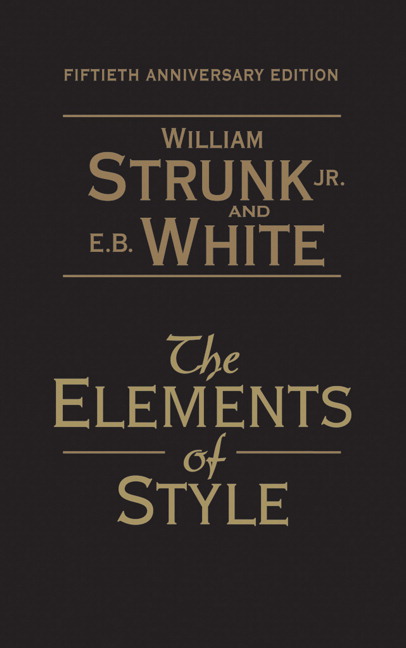For the upcoming 2009 Book Expo in New York, the Perseus Book Group (of which my publisher PublicAffairs is a member), has organized a project to collaboratively create and publish a book in as many formats as possible within 48 hours. The text of the book will consist of submissions from the  public of the first sentence of a yet-to-be published sequel of some well known book — A Tale of Three Cities, To Fricassee a Mockingbird; you get the picture. Submissions are welcome.
public of the first sentence of a yet-to-be published sequel of some well known book — A Tale of Three Cities, To Fricassee a Mockingbird; you get the picture. Submissions are welcome.
Since I sort of suggested this idea to them, I got roped into writing the introduction to the book, and also felt obliged to make a contribution. Inasmuch as The Elements of Style has been on the minds of everybody around here recently, I had the idea of imagining how Pope would have dealt with the work in a sequel to the Essay on Criticism. I had intended to write just a few introductory couplets, but at a certain point the whole world started speaking in iambic pentameter, and the thing just growed.
An Essay on Criticism II
By Alexander Pope
'Tis hard to say, which promises more Loot:
Writing, or Telling others how to do’t.
The Author of a Thriller or Romance
Envisions Strings of Noughts in his Advance,
A Shot on Oprah, front-page Times Review,
Three-movie Deal, and Pad in Malibu.
The Language Critick must console himself
With Dreams of lasting Life upon the Shelf;
For Fame, tho’ most inconstant in her Favor
To USAGE BOOKS, routinely grants a Waiver.
Few Men the slightest Memory retain
Of Edna Ferber, Thomas B. Costain,
Ernest K. Gann, or others once the Rage
With Readers in the Eisenhower Age.
Yet Fortune even now bestows her Smile
On Strunk and White’s The Elements of Style,
Still teaching to new Dogs its antique Tricks,
At Amazon.com Rank 206.
Read the rest of this entry »
 public of the first sentence of a yet-to-be published sequel of some well known book — A Tale of Three Cities, To Fricassee a Mockingbird; you get the picture.
public of the first sentence of a yet-to-be published sequel of some well known book — A Tale of Three Cities, To Fricassee a Mockingbird; you get the picture.